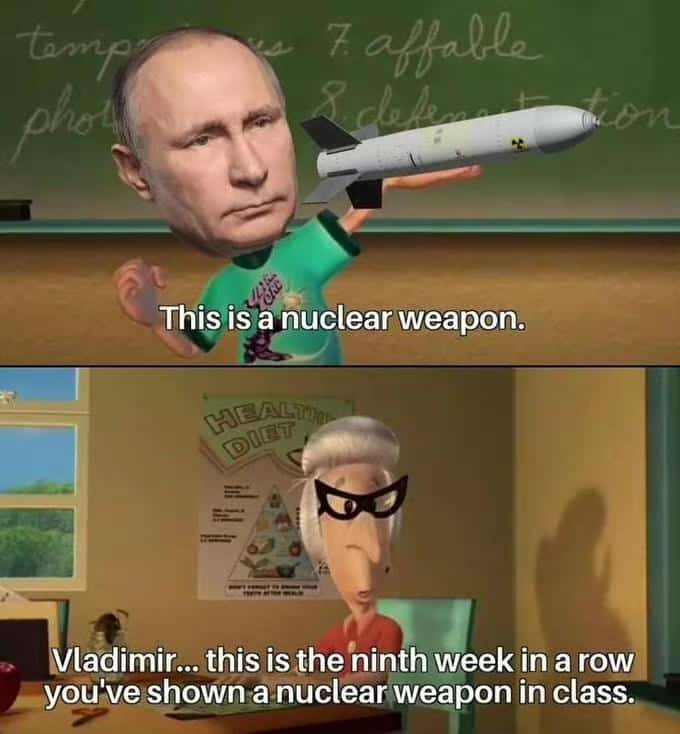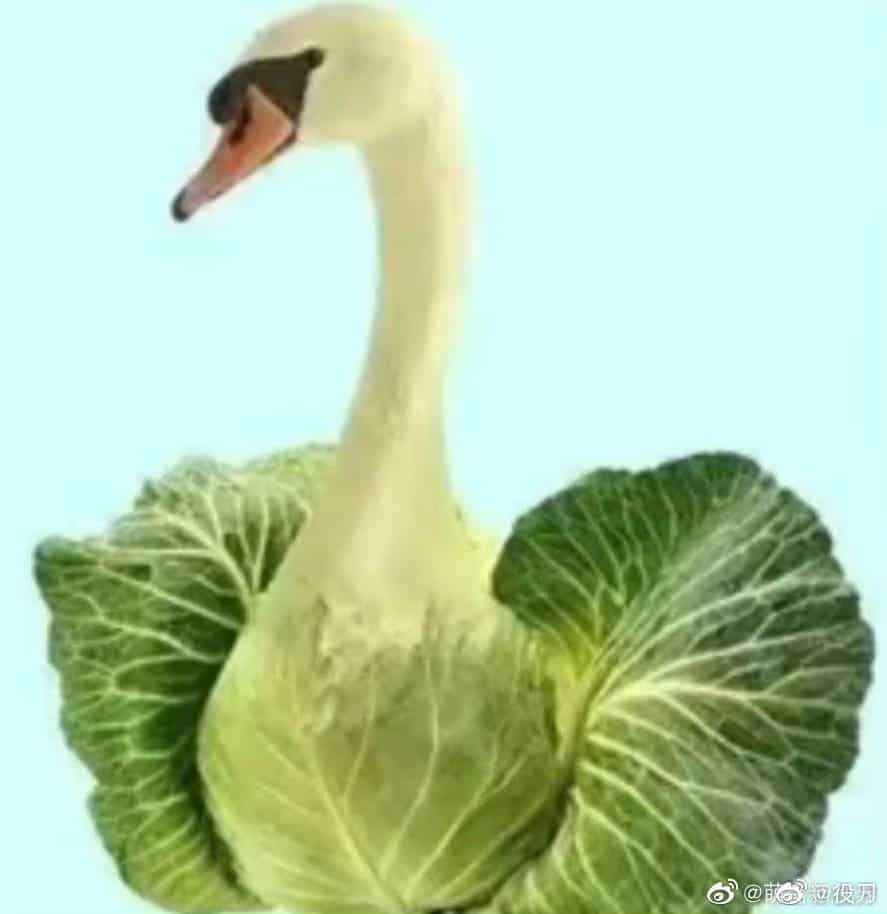Since the beginning of the Russian invasion of Ukraine, the latest developments regarding the war in Ukraine are a big topic on Chinese social media, where military bloggers, academics, political commentators, and ordinary netizens have been sharing their views on the conflict over the past seven months.
Back in February of 2022, many Weibo commenters expressed anti-war sentiments and worries about the situation of the Ukrainian and Ukraine-based Chinese compatriots.
At the same time, there was also a growing group of Chinese netizens who said they supported Russia. One top commenter at the time wrote: “I resolutely support the Russian military action! This is the evil result of Ukraine following the Yankees (美国佬). We should seize the opportunity to liberate Taiwan and to recover the Diaoyu Islands.”
Those speaking out in favor of Putin and the Russian military mainly focused on anti-Western sentiments, and this online discourse was only strengthened by media narratives that also framed the Russia-Ukraine war – commonly referred to as Russia’s “special military operation” – within a Chinese context that stressed the humiliation and injustice suffered by China at the hands of the very same Western powers that were now condemning Russia and were trying to get China on their side (read more in this article).
Others also saw the Russian military invasion of Ukraine as a warning to Taiwan, semi-jokingly writing that Chinese troops could arrive in the morning, that unification would be completed by noon, and that they would all be raising the flag and singing the national anthem together the next day.
But now, seven months and nine days later, it is clear that Russia’s “special military operation” in Ukraine is anything but a quick ‘victory.’
“We’re Witnessing History”
This week, after Russia proclaimed the annexation of four territories in Ukraine, the Russia-Ukraine war has reached a pivotal phase and this is receiving a lot of attention on Chinese social media.
After a series of so-called “referendums” which supposedly showed it was the “will of the millions of people,” Putin claimed that Luhansk, areas of Donetsk, Kherson, and Zaporizhzhia were now part of the Russian Federation. Using increasingly threatening rhetoric, Putin said in his September 30 speech that Russia would defend these areas with “all the means at our disposal.” On Weibo, the topic received over 220 million views (#普京签署顿涅茨克等四地入俄条约#).
That very same day, Ukraine applied for fast-track NATO accession, and Ukrainian President Zelensky said that they are ready for peace talks with Russia, but only with a different Russian president. The topic of Ukraine’s application to join NATO also became a trending topic on Weibo, receiving over 190 million views on Saturday (#泽连斯基签署乌克兰加入北约申请#).
When Jake Sullivan, the U.S. President’s National Security Advisor, stated that it was “not the right time” for Ukraine’s admission to the alliance, China Daily initiated the hashtag “Ukraine’s Application to Join NATO Is Met with a Cold Shoulder by the U.S.” (#乌克兰申请加入北约遭美国冷遇#).
On Sunday, news of President Zelensky declaring the key eastern Ukrainian town of Lyman “fully cleared of Russian forces”. A Weibo hashtag dedicated to the topic of Russian forces retreating from Lyman (#俄军从红利曼撤退#) also received over 150 million views.
“We’re witnessing history,” some Chinese netizens commented, with others replying: “We’ve been witnessing history for the past two years already.”
Shifting Online Sentiments
But the online sentiments regarding the war in Ukraine have shifted over the past months, and there is now more emphasis on the weakness of the Russian military strategy. There are also more voices criticizing those who cheer for Putin.
Qu Weiguo (@曲卫国), a professor at Shanghai’s Fudan College of Foreign Languages and Literatures, denounced fellow Chinese who seemed “happy and excited” about Putin signing the decree annexing four regions of eastern Ukraine and who called it a “checkmate move” that put the West in a difficult position.
According to Qu Weiguo, these “patriotic” fellow Chinese – “I am not sure whether they actually love China or Russia,” he wrote – were overseeing the fact that it is not just the West that is being affected by the annexation, of which the legality is more than questionable. Qu mentioned the 2013 PRC-Ukraine Treaty of Friendship & Cooperation, which conveys Chinese support for Ukraine’s “sovereignty, security, and territorial integrity.” Qu suggests that in this context, China could not possibly recognize the four annexed territories as being part of Russia; and Beijng would also be obliged to support Ukraine in case it would be attacked by Russian nuclear weapons.
Author Du Zijian (@杜子建) also spoke out on Weibo, saying the referendum regarding the four regions claimed by Russia cannot be recognized: “It’s Ukrainian territory, it can’t be stolen by anyone.”

Image posted by Littlepigpig
Military blogger ‘Littlepigpig’ (@用户littlepigpig1), who focuses on the war in Ukraine, provided another perspective on the recent developments, suggesting that Putin’s nuclear rhetoric is just bluff and likely stems from despair over Russia’s inability to defeat Ukraine: “What would be the point of sending hundreds of thousands of Russians to Ukraine to be brutally slaughtered before launching a nuclear strike!?”
The ‘Weak Goose’ Meme
There are more people who now express that they see little chance of Russia winning this war. One regular Weibo user wrote: “The soldiers have no morale, the country has no money, and their equipment technology lags behind NATO.” “They’re so disappointing,” others wrote.
One term that recurringly comes up in these discussions, from Weibo to Zhihu, is that of ‘Weak Goose’ (菜鹅 cài’é).
The term, that has been surfacing for a few months, is a wordplay on 菜俄 (also cài’é), which means ‘Weak Russia’ and is short for “the weak Russian army” (“俄军很菜”).
Although ‘菜’ (cài) actually means ‘vegetable,’ it is also slang for ‘poor’ or ‘weak’ when used as an adjective (see this video for explanation.)

This image is another word play on ‘weak goose’, turning it into a ‘vegetable swan’ instead.
According to Jikipedia, ‘Weak Goose’ started to be used by Chinese political and military bloggers after they found that the Russian army advanced much slower than they had expected. They came up with the word to make fun of Russia struggling with basic military mistakes and low military capabilities.
Recently, instead of ‘weak goose,’ the term ‘weak Russia’ has also been used more often (so 菜俄 rather than 菜鹅; just for clarity, we’ll translate them both as ‘Weak Goose’ here). Russia is usually also nicknamed ‘big goose’ in China (大鹅).
The past week, multiple Chinese (military) bloggers have started using this term again in light of Putin’s fading victory and the retreat from Lyman. Reports about Russian recruits allegedly being instructed to use tampons and pads on war wounds in light of a shortage of military supplies further strengthen the Weak Goose meme: “Who thought the ‘Weak Goose’ was so weak?”
Those using the ‘Weak Goose’ term are definitely not necessarily anti-Russian and also not pro-Ukrainian – they are just using the word as a joke and comic relief in a military conflict that has been dragging on for much longer than Chinese netizens had anticipated.
“The Russia-Ukraine conflict is not entertainment”
But not everyone on Weibo appreciates these kinds of jokes. “The Russia-Ukraine conflict is not some entertainment variety show,” one blogger (@Aglaia柒y) with over 220,000 fans wrote, criticizing those who are using the war as a source of drama and entertainment with Putin starring as the main “idol.”
Others also reminded people that the ‘Weak Goose’ is actually very resilient. Well-known finance blogger Liu Zhongling (刘忠岭), known under the alias of @笑看红绿, noted that there were many Chinese people cheering for the latest victory of the Ukrainian army recently. But according to Liu, it is not necessarily something to cheer about: “All the progress that the Ukrainian army is making now, comes at the cost of many injuries and military casualties. Considering that this war is going to take a long time, soldiers are far more important than weaponry.”
He added: “The ‘weak goose’ army is getting worn out (..) but by pulling back they are also preserving strength and that is not a bad choice. People who know their history already anticipated the Russians would get pulled down, but they also know the ‘Weak Goose’ is actually tough.”
Although the ‘Weak Goose’ meme is one that is just alive within particular online circles, it is telling of a shift in sentiments on Chinese social media regarding a conflict in which many initially believed Russia was like a strong brown bear fiercely attacking Ukraine, rather than a worn out goose nibbling on its neighboring country (reference post).
Chinese well-known political commentator Hu Xijin stirred away from any jokes. In his recent post on Weibo, he warned that “the world must be prepared for a further escalation of the war in Ukraine, even beyond Ukraine.”
By Manya Koetse
With contributions by Miranda Barnes.
Get the story behind the hashtag. Subscribe to What’s on Weibo here to receive our weekly newsletter and get access to our latest articles:
Spotted a mistake or want to add something? Please let us know in comments below or email us. First-time commenters, please be patient – we will have to manually approve your comment before it appears.
©2022 Whatsonweibo. All rights reserved. Do not reproduce our content without permission – you can contact us at info@whatsonweibo.com.
The post Why Russia Is Nicknamed the “Weak Goose” on Chinese Social Media appeared first on What's on Weibo.